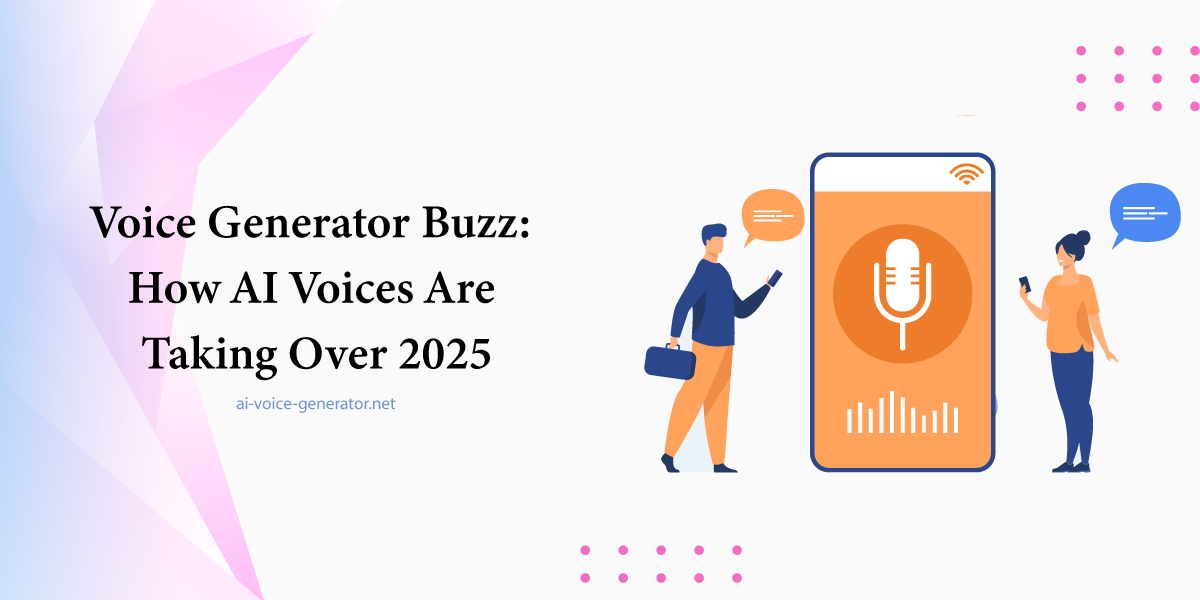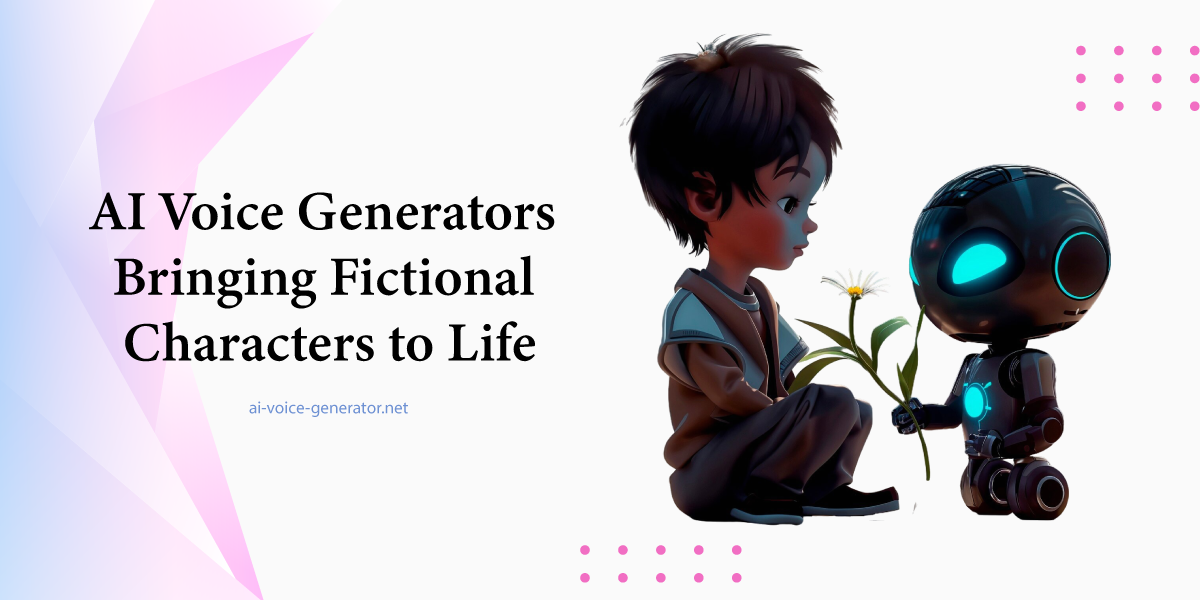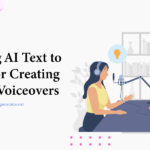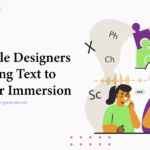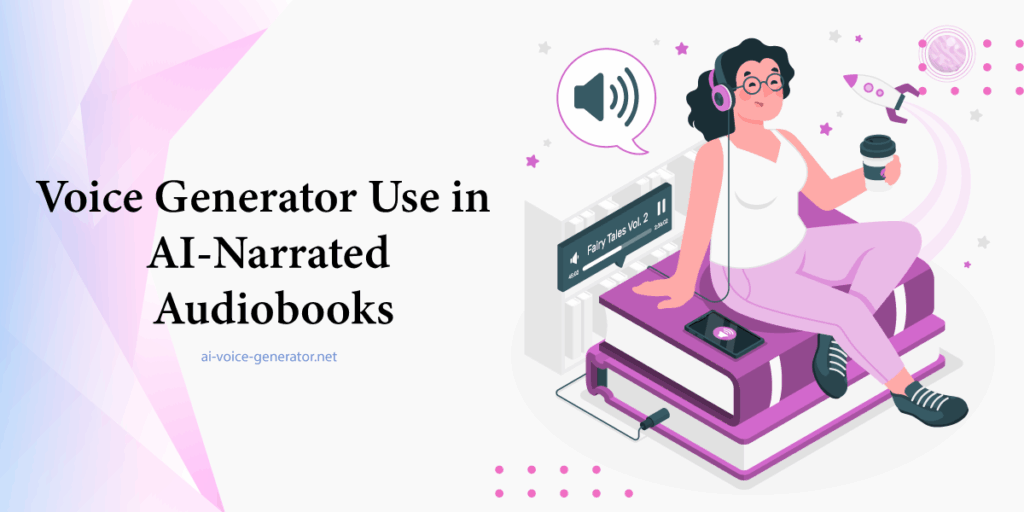
Voice Generator Use in AI-Narrated Audiobooks
Artificial intelligence has taken many industries by storm, but few have experienced such a profound shift as the audiobook space. With the rise of AI audiobook narration, publishers and content creators are rethinking how they approach audio storytelling. While the allure of speed and cost-efficiency is clear, the growing reliance on AI voices prompts a serious conversation about authenticity, ethics, and the future of human narrators.
In today’s digital publishing landscape, AI-narrated audiobooks are becoming more common, especially as streaming platforms push for faster content production. But behind the curtain, there are important discussions surfacing regarding how these synthetic voices are trained, the rights of original voice actors, and how listeners perceive and respond to computer-generated narration.
The increasing use of AI-driven narration has naturally raised questions about what makes a story feel real. For some, the experience of listening to an audiobook voiced by an artificial narrator can still feel mechanical. For others, the realism offered by natural‑sounding text to speech technology is closing that gap faster than anticipated.
Audible AI Narrators Changing Audiobook Production
The shift toward Audible AI narrators is perhaps the most high-profile example of this transformation. Amazon’s audiobook division has already begun using machine-generated voices for specific titles, especially in genres like self-help and nonfiction, where emotional nuance is perceived as less essential. This decision has prompted both intrigue and criticism from authors, listeners, and voice professionals.
Some authors appreciate the ease of publishing their work in audio form without the high cost of hiring a human narrator. Others argue that this approach sacrifices emotional tone, subtle intonations, and the storytelling depth that skilled narrators provide. The rise of AI narration is more than just a technological advancement—it’s also a signal of changing audience expectations.
More importantly, the expansion of this technology into mainstream platforms brings the ethical implications of audiobook voice cloning into sharper focus. Narrators and voice actors are concerned about how their voices might be replicated, altered, and distributed without explicit consent. The tech may save time, but it risks diminishing the value of genuine human contribution.
The Controversy Around Synthetic Voice Ethics
One of the most debated aspects of AI in audiobooks is synthetic voice ethics. As tools become more sophisticated and generate increasingly lifelike voices, questions arise: Should AI be allowed to use samples of human voices for training without permission? Is it ethical to publish an audiobook narrated by a synthetic version of a real person’s voice?
These are not hypothetical concerns. Many in the industry feel blindsided by the speed with which AI voice tools have entered the publishing space. For example, a narrator may record a few sentences for an unrelated project, only to later find their voice used to narrate an entire book via cloning without clear legal protections. The gap between what is technically possible and what is ethically sound is rapidly widening.
There are also cultural implications. If AI tools are trained primarily on Western English voices, the global diversity of accents and linguistic nuances could be flattened. While the AI may be capable of adjusting its pitch or tone, it often lacks the subtle cultural insights a human narrator brings to a story. These are critical elements that AI still struggles to replicate.
Voice Generator Tools and Narrative Authenticity
A growing number of platforms now offer powerful voice generator tools, including AI Voice Generator, which enable content creators to produce lifelike narration in seconds. These tools are optimized to generate realistic-sounding voices that align with the pacing and tone of standard audiobook narration. But while they are undeniably useful, they also contribute to a larger conversation about authenticity.
The concept of AI‑driven narrative authenticity centers on how believable a story feels when voiced by an AI. Can listeners fully immerse themselves in a novel when they know the voice reading it isn’t real? For some, the synthetic nature of the voice can break immersion. For others, especially those who prefer consistency or have accessibility needs, the AI’s steady cadence can be beneficial.
Proponents argue that as long as the voice is clear, expressive, and emotionally attuned, it shouldn’t matter whether it comes from a machine. Critics, however, believe that narrative authenticity is inherently tied to human experience, something that artificial tools can only mimic, not embody. The balance between efficiency and emotion is delicate—and still evolving.
Legal Implications and Voice Replication Regulation
As AI continues to encroach on traditional audiobook roles, legal systems around the world are scrambling to catch up. One major concern revolves around voice replication regulation, especially in scenarios where a narrator’s voice has been cloned without informed consent. Several voice actors have raised alarms about contracts that include vague terms, which may allow platforms to reuse or simulate their voices indefinitely.
There is growing momentum to push for clearer protections that define the legal boundaries of AI-generated voice use. These would include limitations on how long a voice sample can be stored, what projects it can be used in, and whether creators have the right to request its deletion. Without such protections, the door remains open for misuse, undermining trust in the entire audiobook ecosystem.
Regulatory measures must also consider the rights of listeners. Should audiobooks come with labels disclosing whether the narrator is AI or human? Transparency might become an important part of maintaining listener trust as this technology becomes more common.
Impact on Professional Narrators and AI Voice Actor Rights
The entrance of synthetic voices into mainstream publishing has had a noticeable impact on professional voice actors. Many report losing contracts or being paid less because clients now have access to cheap alternatives. This change has sparked a debate around AI voice actor rights and whether existing labor protections are sufficient for this new landscape.
Some actors advocate for the classification of voice data as intellectual property, giving them control over how it is used. Others suggest that licensing models—where actors can lease digital versions of their voice for a fee—could offer a sustainable path forward. But without industry-wide standards, there’s little stopping unethical companies from exploiting voice talent.
There’s also an emotional toll. Many narrators view their work as deeply personal, an extension of their identity and artistic expression. Being replaced by a machine isn’t just a financial blow—it’s a professional and emotional one as well.
Quality Challenges in Natural‑Sounding Text to Speech
One of the key selling points for modern AI voice tools is their ability to produce natural‑sounding text to speech. These systems are trained on thousands of hours of human speech, allowing them to mimic inflection, rhythm, and tonal shifts. However, despite these advances, listeners often report that AI voices still sound too “perfect”—lacking the imperfections that make human speech feel relatable.
In some genres, like technical manuals or academic work, this robotic precision might be an asset. But for fiction or memoirs, the absence of spontaneous laughter, subtle pauses, or emotional hesitations can make a noticeable difference. The technology is improving, but authenticity remains elusive.
It’s also worth noting that listeners are becoming increasingly savvy. Many can now detect even subtle indicators that a voice is artificially generated. This could lead to pushback against publishers who use AI without disclosure, especially when it feels deceptive or lazy.
The Creative Tension: Speed vs. Substance in AI Audiobooks
AI narration offers undeniable speed. Books can be converted to audio in hours instead of weeks. But does this efficiency come at the cost of quality storytelling? This is the ongoing tension within the audiobook world. While some publishers prioritize fast content delivery, others believe in preserving the immersive power of a well-delivered narration.
Human narrators bring interpretation to the text—they decide where to pause, what emotion to emphasize, how to build tension. AI narrators, even the best ones, follow algorithmic logic. They don’t feel surprise, sorrow, or joy. For literature that thrives on emotional nuance, this difference is significant.
Despite all this, AI voices are finding their niche. They are especially useful in short-form content, like blog posts converted into audio or educational material that needs consistent tone and clear pronunciation. In these areas, the technology excels.
The Role of Consent and Collaboration in AI Narration
Consent is a central issue in the ethics of AI narration. For voice actors, consent isn’t just about agreeing to one project—it’s about knowing how their voice will be used in the future. Contracts must be rewritten to reflect this reality. Meanwhile, publishers should view AI not as a replacement but as a collaborator—a tool that works alongside humans rather than erasing them.
The future of AI audiobook narration could be hybrid. Some companies are experimenting with blending human and AI voices, using machines for basic narration and actors for emotionally rich segments. This approach could offer the best of both worlds, maximizing efficiency while preserving storytelling depth.
Listeners, too, must be part of the conversation. Their feedback will shape how publishers adopt and adapt to this technology. As awareness grows, audiences may begin to demand ethical production processes, proper crediting, and clear disclosures.
FAQs
Yes, but legal clarity depends on how the AI voice is sourced and used.
They are improving rapidly but still lack full emotional depth.
It’s the debate over fairness and transparency in using AI-generated voices.
They can in some cases, but lack the emotional range of real narrators.
It sets boundaries on how voice data is cloned, stored, and reused.
